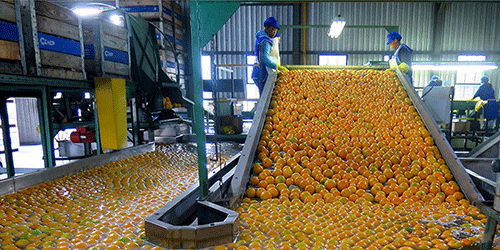Bank of Namibia governor Johannes !Gawaxab said the food industry offers economic opportunities and is suitable for the large unskilled labour profile of Namibia’s unemployed population.
The governor is convinced this industry offers opportune and ideal structures to kick start rural and regional economies.
“The potential offered through our green schemes and irrigation schemes along our water bodies must be combined with innovation, technology, and making finance (micro-credit) accessible and affordable to facilitate self-employment and rural economic development,” said !Gawaxab last week during the Innovation Investment Readiness (IIR) Week in the capital.
The IIR Week was hosted by the Namibia Investment Promotion and Development Board (NIPDB), in partnership with the Namibia University of Science & Technology (NUST) and Mobile Telecommunications Company (MTC).
The conference was aimed at identifying value-creating sectors’ specific projects to strengthen Namibia’s competitiveness as an investment destination focusing on key sectors identified to diversify the country’s economy.
These sectors include food and agro-processing, chemicals and basic materials (manufacturing), metals, transport and logistics, renewables and green hydrogen, tourism, tech (FinTech and others) and digital and global business services.
!Gawaxab reiterated investing in and producing products in these industries has the potential to increase Namibia’s value addition, economic diversification, self-sustenance and can create higher employment growth that will translate into economic growth.
These industries also represent prospects in which the youth need to be encouraged and supported to create self-employment, he added.
According to !Gawaxab, this low-hanging fruit will reduce reliance on imported products for specific industries where there is comparative advantage.
He noted there are about 15 products currently imported in significant quantities that can be substituted with domestically produced, or scaled up as some are already produced locally.
In total, the import bill of these 15 products translated to more than N$5 billion in 2021.
“If we substitute these imports or a significant portion thereof by producing them cost-effectively here at home, it will have a massive impact with added multiplier benefits. In this regard, we must ensure opportunities for self-employment and SMEs and raise their returns through the prospects offered by import substitution,” he stated.
Furthermore, sharing what Namibia can do as part of a new architecture to address structural economic challenges and post-pandemic recovery response, !Gawaxab said the private sector must be the core and engine for Namibia’s growth.
Hence, he added, all the more reason to facilitate and ensure an enabling environment for the private sector, through appropriate policy and regulatory reforms, particularly on investment and finance.
He concluded that the Covid-19 pandemic and the Russia-Ukraine conflict have reinforced the urgency and essentiality of building economic resilience to shocks: “We need to scale up efforts to address high unemployment, particularly among our youth, tackle inequality, and secure our food and energy security. Similarly, we must build climate shock resilience industries.”


